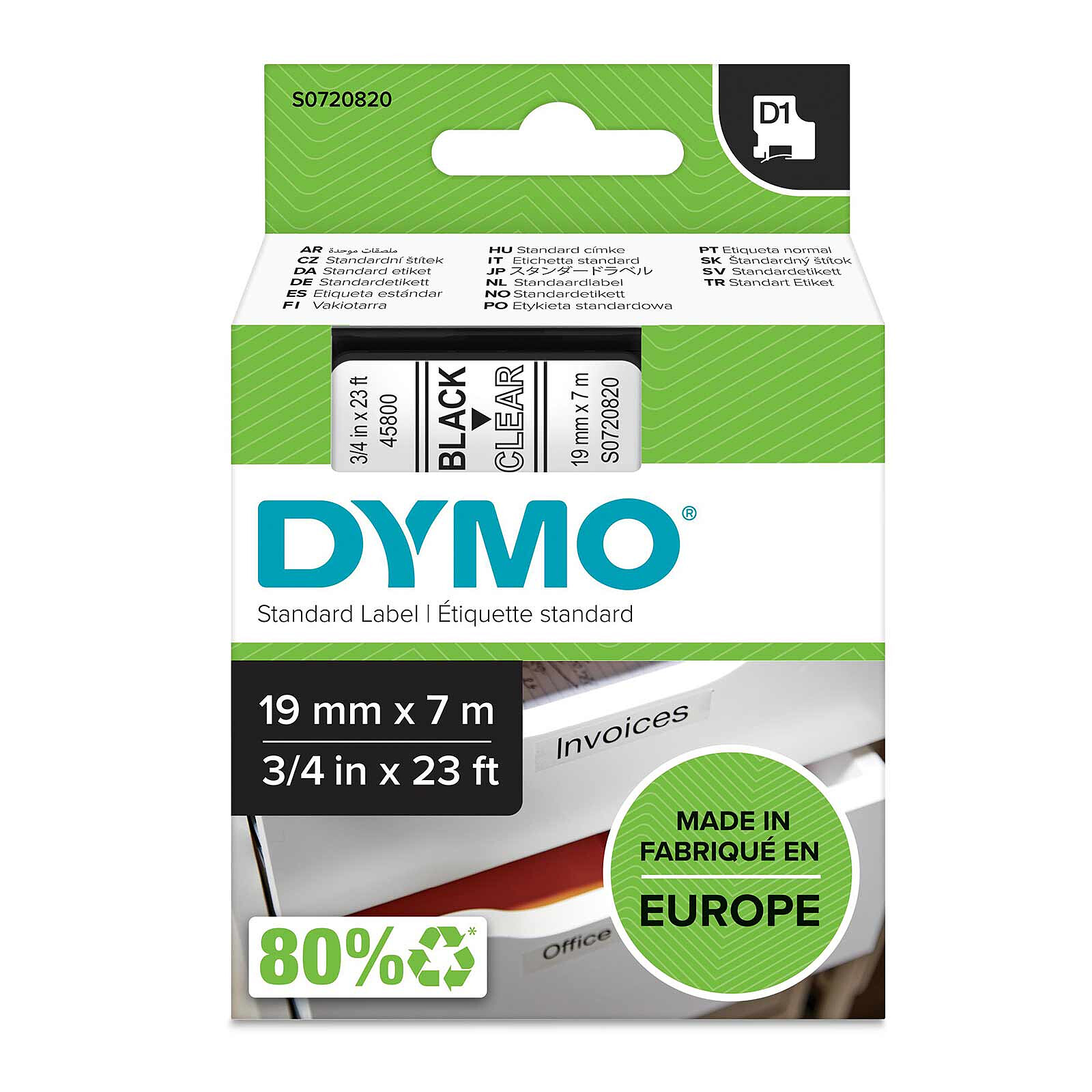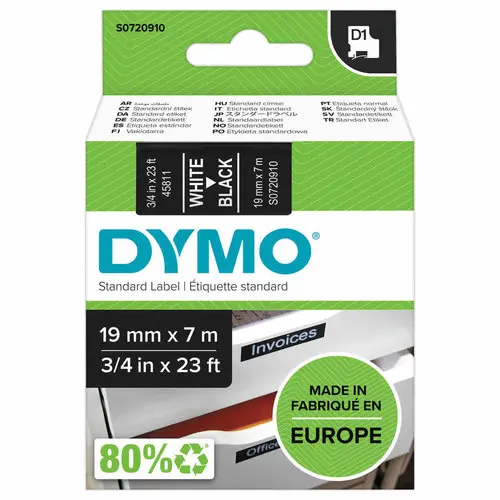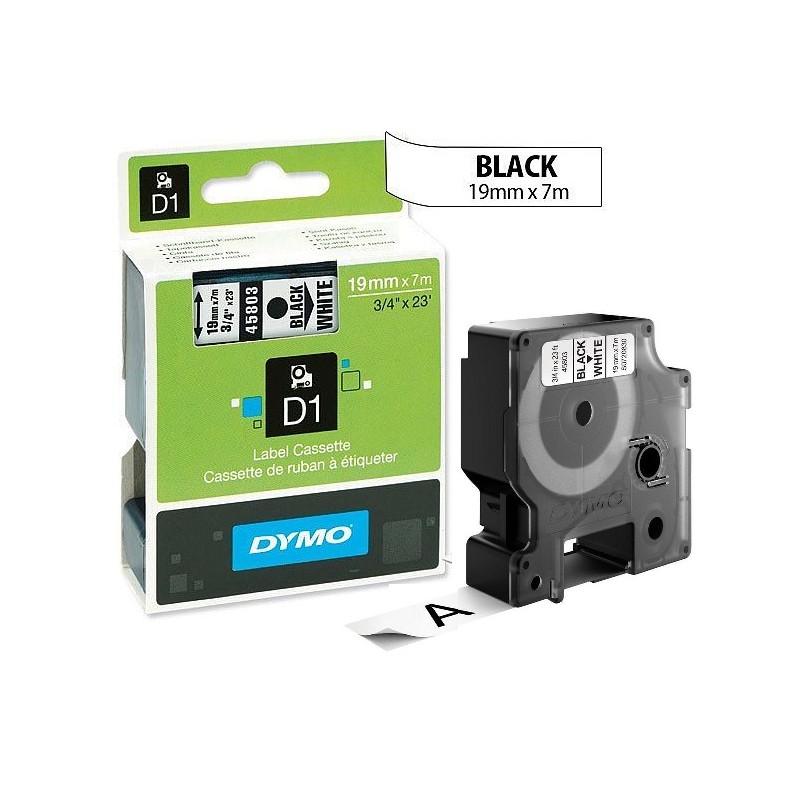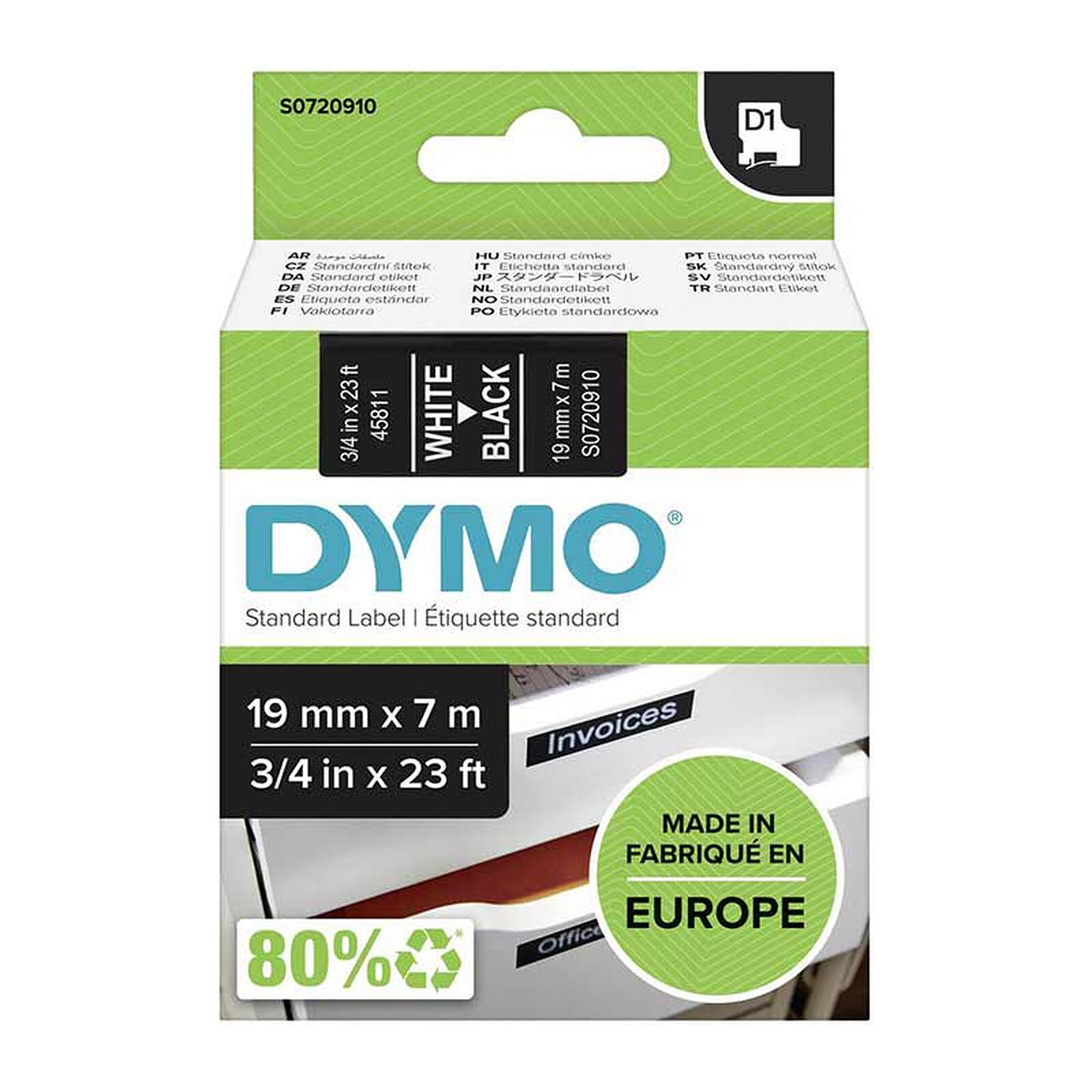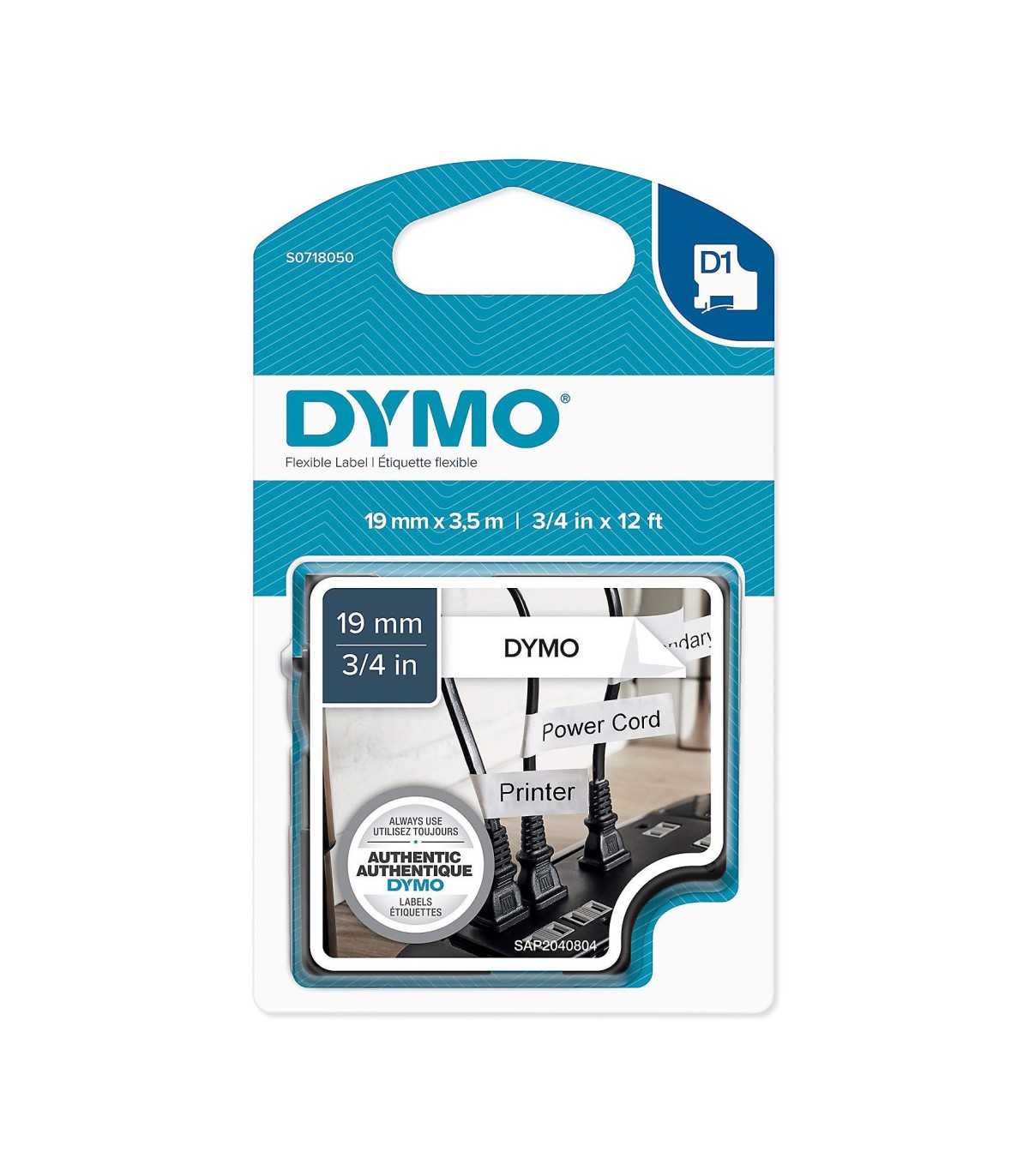
Dymo Ruban cassette Dymo 19 mm x 7 m noir et blanc 19 mm - prix pas cher chez iOBURO- prix pas cher chez iOBURO

DYMO D1 étiquettes autocollantes authentiques | impression en noir sur fond blanc | 19 mm x 7 m | pour étiqueteuses LabelManager : Amazon.fr: Fournitures de bureau

DYMO D1 étiquettes autocollantes authentiques | rouleau de 19 mm x 3,5 m | impression en noir sur fond blanc | pour étiqueteuses LabelManager : Amazon.fr: Fournitures de bureau
/pub/media/catalog/product/4/5/45811_1_ead0.jpg)
Dymo D1 - Ruban d'étiquettes auto-adhésives - 1 rouleau (19 mm x 7 m) - fond noir écriture blanche Pas Cher | Bureau Vallée
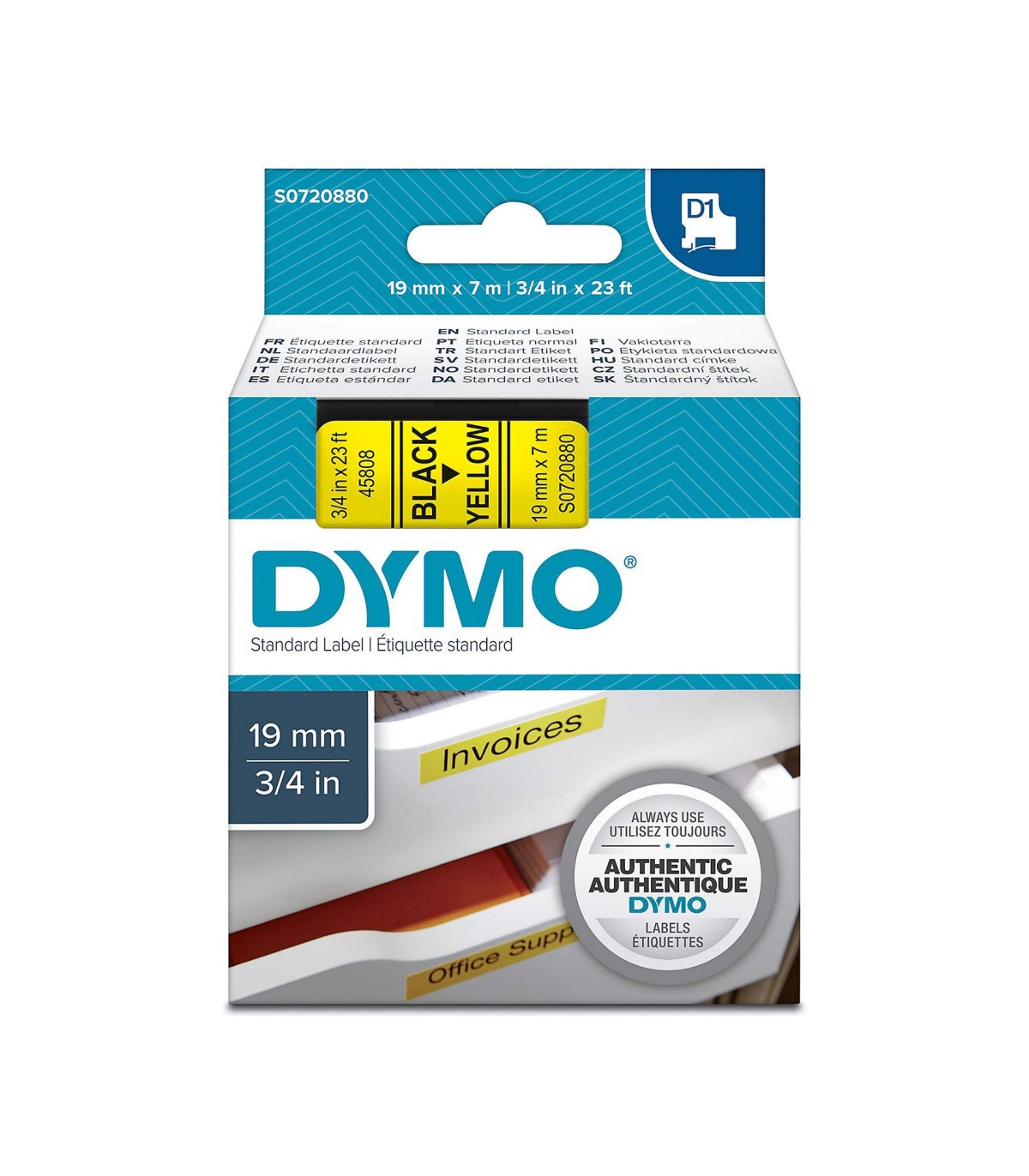
DYMO LabelManager cassette ruban D1 19mm x 7m Noir/Jaune (compatible avec les LabelManager et les LabelWriter Duo)

DYMO RHINO 4200 Etiqueteuse adapté pour rubans: IND 6 mm, 9 mm, 12 mm, 19 mm - Conrad Electronic France





